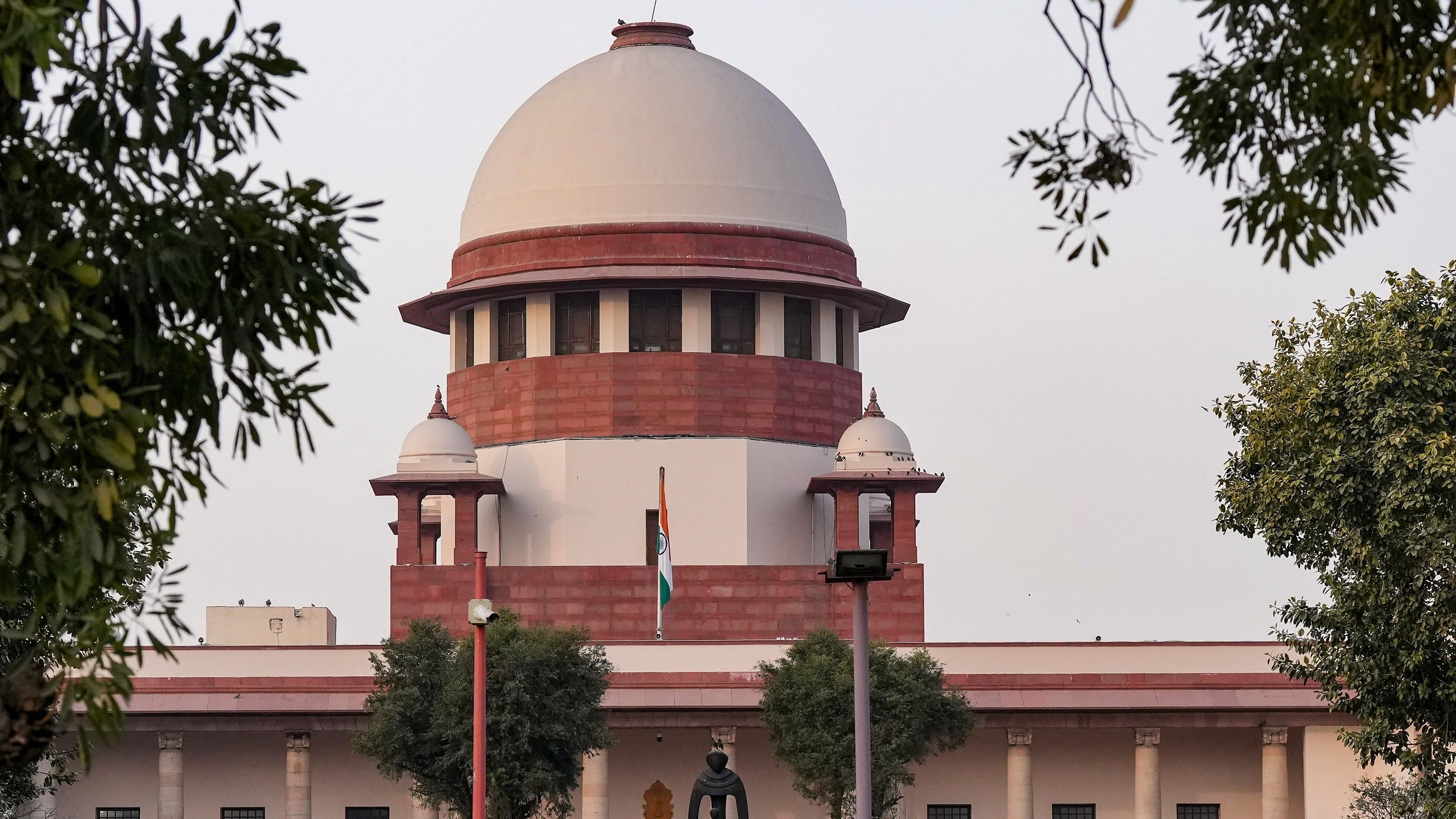
The Supreme Court of India.
Credit: PTI File Photo
New Delhi: The Supreme Court on Monday set free two teachers of a higher secondary school in Tamil Nadu, jailed for alleged sexual harassment of a girl student after finding material contradictions in the case, saying half baked evidence can jeopardise the reputation of the teacher and his fundamental right to lead a life of dignity.
The top court said sexual harassment of a girl student by a teacher is a grave offence for its far reaching consequences but care has to be taken in such cases.
A bench of Justices Dipankar Datta, K V Vishwanathan and Sandeep Mehta provided relief to Nirmal Premkumar and another teacher. Both Premkumar and another were sentenced to three and two years in jail for offences under POCSO Act and criminal intimidation respectively.
The accused teacher was accused of a girl student of trying to hand her over roses, jasmine flowers and chocolate on Valentine's day on February 14, 2018. The other teacher allegedly intimidated her.
In its judgment, the bench said, "We quite agree that an act of sexual harassment of a girl student (who is also a minor) by any teacher would figure quite high in the list of offences of grave nature since it has far-reaching consequences, which impact more than just the parties to the proceeding."
"At the same time, it is axiomatic that reputation is earned by a teacher upon rendering service over the years and an accusation like the present would remain as an indelible mark marring his entire future life. Care has, therefore, to be taken so that his right to live a life of dignity and personal liberty are not put to jeopardy on the basis of half-baked evidence," the bench said.
The court found the prosecution's case was marked by lacklustre efforts, revealing a poorly executed endeavour that gives rise to substantial doubts regarding the integrity of the case.
The bench said the victim's version appears muddled and prevaricated, much less coherent.
"It is precisely these inconsistencies and contradictions, which are material, that compel us to reject the case set up by the prosecution before the Special Court with which the Madras High Court concurred adopting a flawed approach," the bench said.
The court said none of the students present in the classroom was examined except one, i.e. who turned hostile to the case set up by the prosecution right from the word ‘go’.
The bench also pointed out there were manifest discrepancies between the statement of the victim recorded under Section 164, CrPC and her deposition recorded in court.
